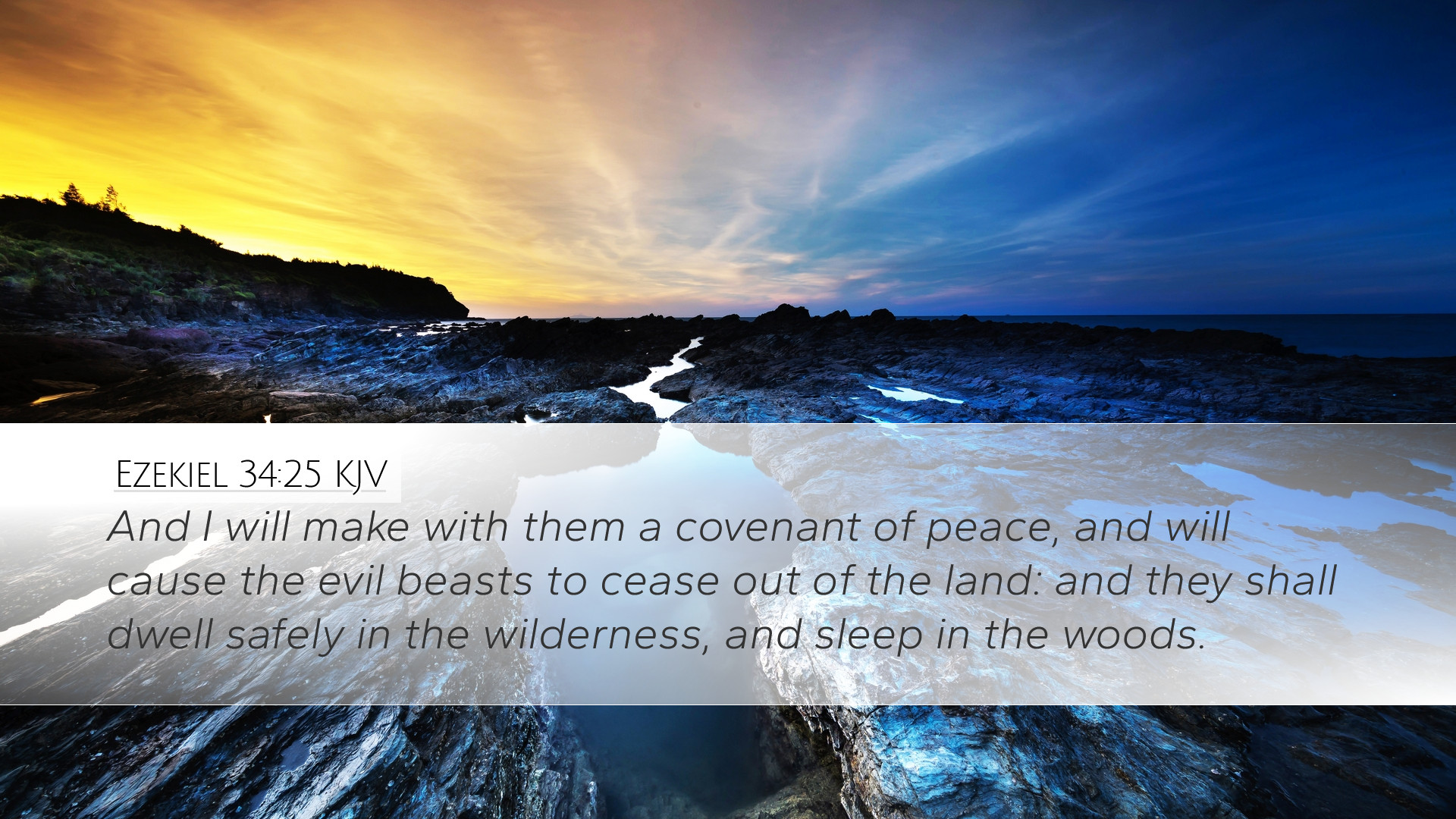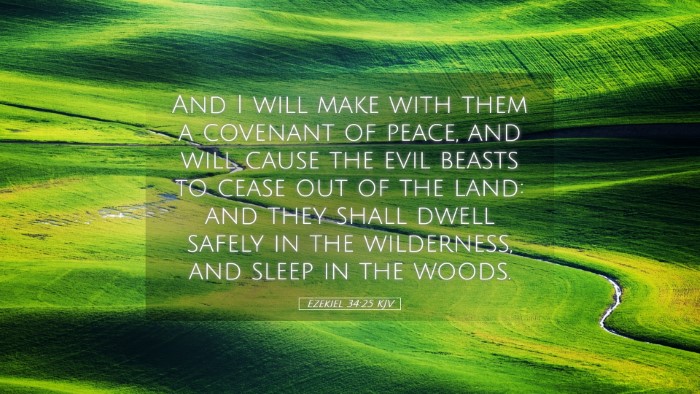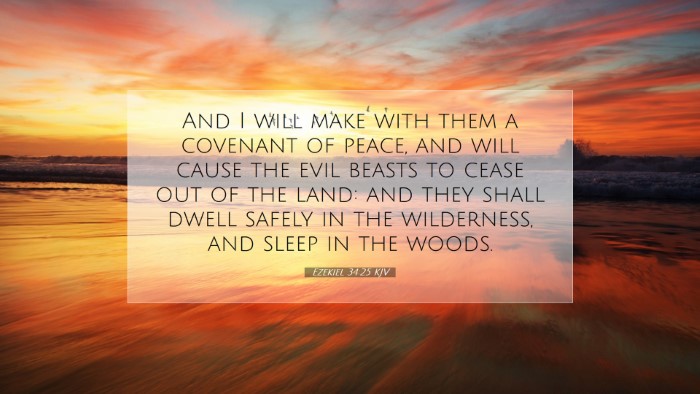Ezekiel 34:25 - Commentary Overview
“And I will make with them a covenant of peace, and will cause the evil beasts to cease out of the land: and they shall dwell safely in the wilderness, and sleep in the woods.”
This verse is part of a larger passage in Ezekiel where God, through the prophet, reassures His people of their restoration and protection under His care. Below, we explore various insights drawn from public domain commentaries by Matthew Henry, Albert Barnes, and Adam Clarke.
Contextual Background
The chapter addresses the condition of God's people, likening them to scattered sheep that have been mismanaged by negligent shepherds. The promise of a "covenant of peace" signifies a transformative relationship between God and His people, instilling hope and security amid turmoil.
Analysis of Key Phrases
- Covenant of Peace: This phrase indicates a divine promise that transcends mere absence of conflict; it encapsulates well-being, prosperity, and harmony. Henry emphasizes that this covenant is a reflection of God's grace, ensuring His people experience profound tranquility.
- Evil Beasts: Barnes identifies these "evil beasts" as symbols of dangers and adversities that threaten the flock. The cessation of such threats signifies divine intervention and protection.
- Dwell Safely: Adam Clarke notes that "dwelling safely" illustrates a condition where the people can enjoy their surroundings without fear, denoting restoration in both physical and spiritual dimensions.
- Wilderness and Woods: The mention of these places suggests a return to natural harmony where God's people can flourish, free from the instigators of chaos and conflict.
Theological Implications
This verse presents significant theological implications regarding God's nature as a shepherd and protector. The covenant indicates a renewed relationship, moving beyond previous transgressions to a state of grace. As highlighted by Clarke, this covenant anticipates the Messianic age, where peace will be established through the ultimate Shepherd, Christ.
Divine Assurance of Protection
Henry articulates that the presence of divine guidance is essential for God's people to feel secure. The promise of God to cease the influence of evil beasts serves as an assurance that He actively works to safeguard His followers. This assurance can be a source of hope and motivation for ministry leaders and believers alike.
Transformation through Covenant
The covenant itself represents a fundamental transformation in the relationship between God and His people. As noted by Barnes, this reflects the broader theme of divine renewal seen throughout the Bible. God's commitment in making this covenant invites reflection on our covenant with Him through Christ, urging a deeper understanding of His promises in our lives.
Practical Applications
- Reassurance in Ministry: Pastors can draw from this promise as a foundation for preaching hope and peace in turbulent times. The assurance of God’s protection can significantly encourage congregations to trust in His providence.
- Community Engagement: The imagery of safety in the wilderness calls for a restorative approach in communities, focusing on healing and wholeness in Christ.
- Personal Reflection: Believers are encouraged to reflect on their personal relationship with the Good Shepherd, recognizing the peace we can experience amid life's challenges.
Conclusion
Ezekiel 34:25 serves as a profound testament to God’s unwavering commitment to His people. Through the eyes of Henry, Barnes, and Clarke, we glean not only historical and theological insights but also practical guidance that speaks to the heart of ministry and personal faith. By embracing the covenant of peace promised in this verse, believers can walk confidently, assured of God's protective presence and transformative love.


